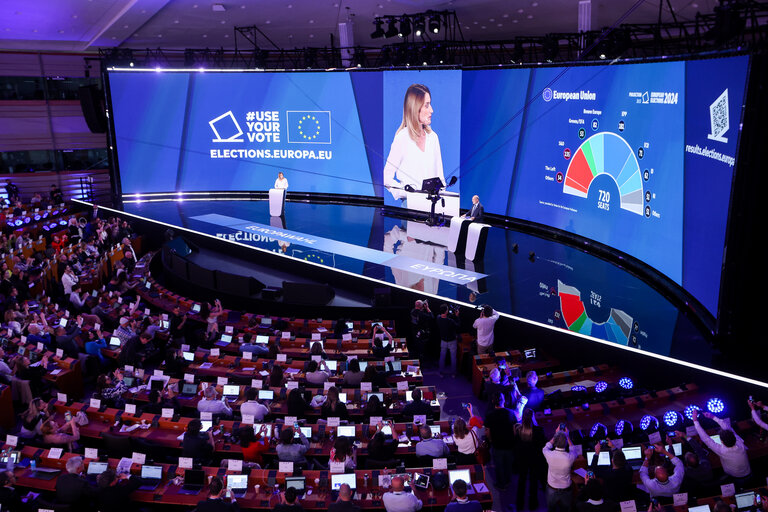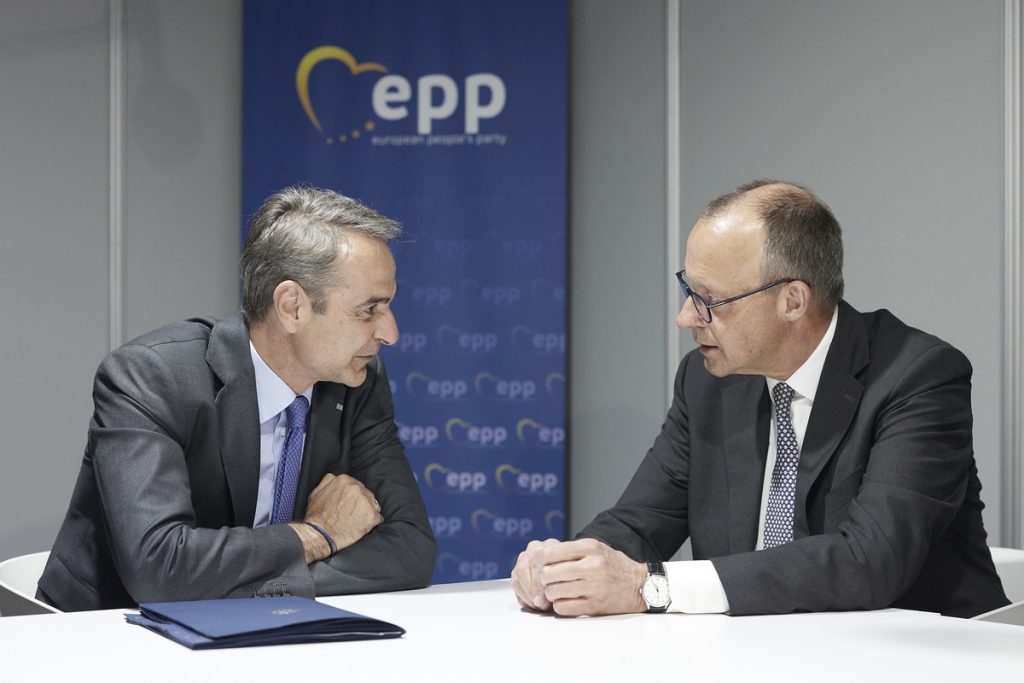Europe’s voters have shifted the political balance to the right. In France and Germany, traditionally the political power centers of the European Union, far-right parties are celebrating historic triumphs. How these tectonic shifts will affect political processes remains to be seen.
The leaders of the right-wing parties are notorious for their radical rhetoric. Finding consensus, a crucial virtue in cross-border European politics, is not one of their strengths. The European People’s Party, which includes Greece’s Nea Dimokratia, has made slight gains and can celebrate itself as an anchor of stability and political continuity, albeit in a changed political environment.
After election results are announced, it is customary for discussions to erupt about who the winners and losers are. With these elections, it is easier to agree on who the losers are. In the big picture, the biggest losers are the governments in France and Germany. Olaf Scholz and his Social Democratic Party recorded their worst result in a national election in the party’s history with 14%.
The SPD’s negative record is accompanied by a record win for the Alternative for Germany (AfD). The party, which had hit the headlines with various scandals, has emerged as the big winner. The fact that the far-right party is now the most popular in eastern Germany with 40% of the vote sends shockwaves through the political class and many liberal democrats at home and abroad. The right-wing parties in France have been just as successful as the far-right in eastern Germany, mobilizing 40% of the electorate for themselves.
This Sunday, the country experienced a two-fold political earthquake. On the one hand, the triumph of Marine Le Pen’s party marks the president’s most serious political defeat. No less dramatic is the announcement by the election loser that new national elections will be called at very short notice.
In his hour of need, Macron is seizing the initiative and taking a huge political risk. The weakened president is guided by the hope that voters will decide differently in national elections than in elections to the European Parliament. If Le Pen’s party also wins the upcoming elections, Macron will have to co-govern with the far-right in the future.
Such collaborations are nothing new in the Fifth Republic, but the differences in political programs will make governing in Paris even more difficult. Observers suggest that Macron may be embracing this scenario to ultimately disenchant the far-right party in the eyes of voters and damage Le Pen’s election chances in 2027.
In Brussels, political processes are not expected to become any easier over the next five years. This will become evident with the election of the new (and returning) President of the Commission, Ursula von der Leyen. Given the strength of the EPP and the foreseeable desire of the pro-European parties to unite, experts predict that von der Leyen will ultimately secure a majority in Parliament.
However, major new initiatives aimed at further developing the European Union are unlikely. The right-wing parties will seek to put the brakes on and assert their influence on particularly controversial issues, such as aid for Ukraine and migration. They can certainly refer to the electorate’s vote to justify their stance.
While we are not witnessing the end of the European project—that would be an exaggeration—the election outcomes represent a setback on the path to greater integration and solidarity on the continent.
Dr Ronald Meinardus is a Senior Research Fellow at the Hellenic Foundation for European and Foreign Policy (ELIAMEP) in Athens.



